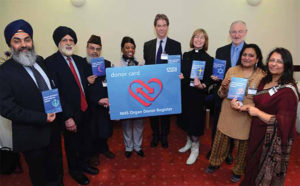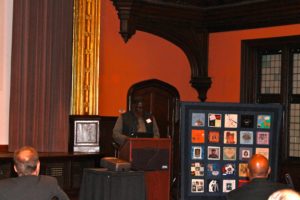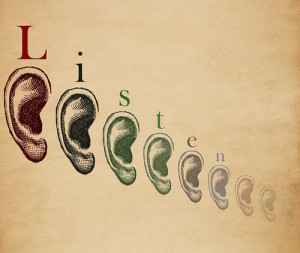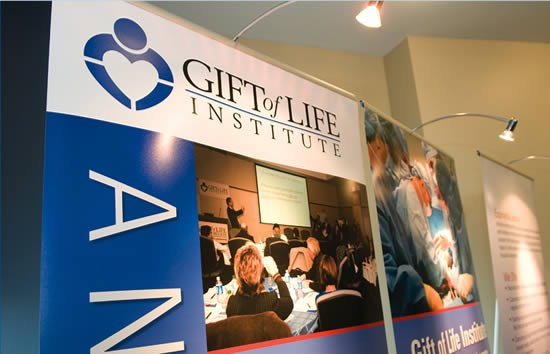Communication
If I’m in an accident and the hospital knows that I am designated as a donor, the doctors won’t try to save my life.
Truth: Doctors, nurses and paramedics will do everything they can to save your life. In fact, an individual must be in a hospital, on a ventilator and pronounced brain dead in order to donate organs. Organ Procurement Organizations (OPOs) are not notified until life-saving efforts have failed. The transplant team is not notified by OPOs until permission has been given by the deceased’s family.
If I am a registered donor, doctors may remove my organs before I have passed away.
Truth: Brain death (when the brain dies due to lack of blood and oxygen) is a medically, legally, and morally accepted determination of death. To determine brain death, more than one diagnosis of brain death and a series of tests over a period of time are required before the donor’s family is presented with the opportunity to donate.
Organs can be bought or sold on the black market.
Truth: These stories are untrue and have become harmful urban legends. Due to the complexity of transplantation, the necessity of involvement from highly trained medical professionals, the process of matching donors with recipients, the need for modern medical facilities and the support necessary for transplantation make it impossible for this to actually happen. The buying and selling of organs and tissues is illegal, as part of the National Organ Transplant Act.
I am too old to be a donor.
Truth: There is no set age limit for organ and tissue donation. At the time of death, trained medical professionals will evaluate patients on a case-by-case basis to determine which organs and tissues are suitable for donation. Therefore, people of any age who want to become organ and tissue donors should indicate it on their driver’s license and inform their family of their decision.
I have a history of medical illness. No one could benefit from my donation.
Truth: A person’s suitability for organ or tissue donation is always determined at the time of death. Clinical professionals from the organ and tissue donor program will review medical and social histories with the donor’s family at the time of death, on a case-by-case basis to determine if the donor is medically suitable.
Even if I say I want to only donate my corneas, they will take all of my organs.
Truth: You can specify which organ and tissues you want to donate in your will or by telling your family which specific gifts you would like to donate at the time of your death. Your decision will be followed.
I don’t need to tell my family that I’d like to be a donor because it’s already in my will.
Truth: By the time your will is read, it will be too late for you to be a donor. Telling your family now that you want to be an organ and tissue donor is the best way to make certain your decision is honored.
My family will have to pay if I become a donor.
Truth: Costs related to donation are no responsibility to you or your family.
My religion does not support organ or tissue donation
Truth: All of the major religions in this country approve of organ and tissue donation and consider it a gift – an act of charity. If you have questions, contact your religious advisor.
Organ and tissue donation means my body will be disfigured. My family will not be able to have an open casket funeral if I become a donor.
Truth: Donated organs are removed surgically, in a routine operation similar to other types of surgery. Doctors maintain the utmost dignity and respect for the donor at all times, so much so that donation will not interfere with traditional funeral arrangements such as an open casket.
Rich and famous people get moved to the top of the waiting list while “regular” people have to wait longer for a transplant.
Truth: The organ allocation and distribution system is blind to wealth or social status. The length of time it takes to receive a transplant is governed by many factors including blood type, length of time on the waiting list, severity of illness and other medical criteria. Factors such as race, gender, age, income or celebrity status are never considered when determining who receives an organ.
The recipient will know who I am.
Truth: Information about the donor is released to the recipient only if the family of the donor requests or agrees to it. Otherwise, the strictest confidence of patient privacy is maintained for both donor families and recipients.
Patricia Mulvania has more than 30 years’ experience in the healthcare field, beginning her career by providing emergency patient care in the pre-hospital setting. Since, Patti has served in leadership roles in the emergency department, homecare, and hospice arenas. She has extensive teaching and leadership experience in both OPO and healthcare fields, and has personally conducted and supervised OPO clinical activity, from initial donor referral through completion of organ recovery. Training professionals to compassionately and proficiently lead conversations with potential donor families that result in proactive, informed, and enduring donation decisions is her specialty.
As with most things related to relationship building, listening is key. When attempting to engage a physician, you’ll need to listen carefully to his or her language and learn to convey your donation information with that language in mind. In other words, speak the physician’s language.
Taking it to the next level, you’ll also need to discern the implications behind the physician’s language. What priorities does the physician’s language convey? It’s a fairly safe bet that those priorities include patient outcomes, family care, and process efficiencies.
It’s also important to consider any barriers to language that may result from your personal communication habits or OPO jargon. Specifically, what do you say and what does your hospital partner hear?
For example, you’ve probably used the term “early referral” when discussing donation. However, the physician could easily hear this as “too early.” Additionally, the physician could begin to use this terminology with colleagues who are less informed about donation. Instead, use the term “timely referral.”
Understand Their Perspective
It’s imperative when engaging physicians to put yourself in their shoes. Consider the following OPO terms and what they mean to us.
- Organ referral
- On-site; early linkage
- Optimize organ function
- Brain death pronouncement
- Collaborative request
- Compliance
Now, consider what each means to the physician. His or her perspective of terms may carry very different, and often sensitive, meanings.
OPO Term What it May Mean to Physician
| Organ referral | Failure and loss |
| On-site; early linkage | Family betrayal |
| Optimize organ function | Caring for a patient with no hope of recovery |
| Brain death pronouncement | Time, resources; futile care |
| Collaborative request | Loss of control |
| Compliance | Dictated practice |
Use your knowledge of the physician’s language and potential perspectives on donation terminology to understand where the physician is coming from. Then use the understanding of those perspectives to align goals or to be on the same page.
Remember, the most likely common ground that exists between you and the physician is the patient. Expand that probable common ground to include the patient’s family and efficiencies and you have a strong foundation for conversation. Donation best practice and policy implementation should center around the benefits of your partnership to this common ground.
Be Transparent
As an OPO professional, it’s your role to serve both the potential donor patient and the potential transplant recipient. This role as dual advocate is an undeniably important one and bears acknowledgement. Transparency in that role is necessary to achieve credibility as a partner and to ensure the best hospital development outcomes. From that foundation—and using language focused on common ground—it’s appropriate to discuss areas that may otherwise be sensitive ones for physicians.
One such area—critical to both maximizing and optimizing donation opportunities—is end-of-life clinical management. How a patient is managed clinically at end-of-life has profound implications on whether—and to what extent—donation is possible. While this area is exhaustive unto itself, it’s a great example of one that can benefit significantly from transparency in your role as dual advocate. The physician may perceive the OPO as “only out to get the organs.” He or she may feel you are asking physicians to perform inappropriate clinical interventions, draw resources away from other patients, or to go against the wishes of a patient or family.
Even though you may feel you are pushing very hard when meeting with a physician, it’s okay that you’re advocating for both potential donors and recipients. These people count on you to do so. But it is also okay that the physician has discomfort or differing opinions. His or her concerns are as real to the physician as your motivation for addressing the topic is to you. Neither should be disregarded.
Examine your use of language, try to speak the physician’s language, and acknowledge your different perspectives. Then use your common ground—usually the patient—to openly discuss your hospital development initiatives with transparency. In the end, this will often equate to full engagement of the physician as a partner.
Elizabeth Spencer has been working in the OPO community since 2002. She was with Washington Regional Transplant Community (WRTC) for nine years, serving as both Director of Hospital Services & Professional Education, and in the clinical division as a Senior Clinical Recovery Coordinator. As Director of Hospital Services & Professional Education, Elizabeth was responsible for oversight of partnerships with area hospitals regarding the implementation of donation best practices, donation educational programs for various hospital staff, hospital data analysis and reporting, hospital donation strategic planning, and hospital policies related to organ and tissue donation.
One of the most important responsibilities of anyone working in the donation field is ensuring that families of potential donors are able to look back on their decision and know that they would make the same decision under less traumatic circumstances. When decisions are made in the context of the values and beliefs that guide the life of a family or individual, then we can be confident about the durability and rightness of those decisions, whether the decision is “yes” or “no.”
 It has been well documented that the vast majority of the world’s religions do not oppose organ and tissue donation. Generally speaking, the premise behind most faith groups is to do good. Many religious leaders emphasize that this can be accomplished, in part, by donating organs or tissue after death; others leave the decision to the individual.
It has been well documented that the vast majority of the world’s religions do not oppose organ and tissue donation. Generally speaking, the premise behind most faith groups is to do good. Many religious leaders emphasize that this can be accomplished, in part, by donating organs or tissue after death; others leave the decision to the individual.
Many faiths believe in the duality of the mind and body; that they are separate and that when the body has died, the spirit has already departed. This can make the decision about donation less complicated than for families who believe the spirit is in every cell of the body.
When faced with the reality of death—either their own or that of a loved one—most individuals are extremely cautious not to violate what their faith dictates. Often, they seek the counsel of their faith leaders. As donation professionals, we cannot assume that all faith leaders are well-informed about the teachings in their own faith on the subject of donation. This being the case, it is vitally important to talk with them and share information before they participate in the donation conversation.
Many OPOs have taken steps to create dialogue with faith leaders in their community. For example, National Donor Sabbath, observed annually in November in the United States, seeks to educate faith-based communities about the need for organ, eye, and tissue donors. This national initiative partners with faith leaders, houses of worship, and faith-based organizations to educate its congregations about the critical need for donors and to dispel myths and discuss religious beliefs about the donation process.
Stacey Caruthers has spent the last 20+ years of her professional career helping to advance organ and tissue donation. She was with Indiana Donor Network (formerly Indiana Organ Procurement), serving as both Manager of Family Services and as a Family Services Coordinator.
Strong and effective communication skills are essential in a field where emotions often reach critical mass. Professionals must be equipped to help families process complex information intertwined with decision-making that can have a lifetime impact on both the potential donor family and those they have the ability to help through donation. Teamwork is imperative for everyone involved.
Surprisingly, one key aspect of communication is often overlooked or underrated by professionals in this field… the power and impact of listening
When asked, most professionals will say that they are good active listeners. It’s surprising to realize how rarely people actually do attentively listen to one another when interacting. We allow ourselves to be distracted, preoccupied by other matters of importance, or thinking about what we’re going to say next. In fact, one of the most difficult communication skills to learn is to give someone the respect and consideration they deserve by being “fully present”… and giving others our full attention.
Listening has been shown to be essential to communicating respect for another person. To test this claim, reflect on your own feelings. Consider a time when you may have been talking with someone who interrupted you or continually focused on what they wanted to express in the conversation. Maybe it was clear that their mind was elsewhere and they weren’t at all “fully present” with you. When we want to build a strong relationship with another person, our ability and commitment to listening attentively and empathically is essential.
Not all listening is the same
Passive listening is little more than hearing. Passive listening is listening without reacting: allowing someone to speak, without interrupting. Not doing anything else at the same time, and yet not really paying attention to what’s being said. Passive listening is one-way communication where the receiver doesn’t provide feedback or ask questions and may or may not understand the sender’s message.
Active listening includes responses that demonstrate that you understand what the other person is trying to tell you about his or her experience. This is a communication technique that’s very different from the passive or unfocused listening that we often adopt in everyday conversation.
When you accurately reflect back to a person what’s been said, you show that you’ve been listening—not just hearing—and that you genuinely understand the feeling/s or message/s they are trying to convey. This creates an environment that allows the speaker to go deeper, and sometimes even to come to new realizations. It’s the basis for trust and respect. It’s also the foundation you need to better serve both donor and recipient families.
Active listening is a conscious effort that demands empathy, effort, attention, and lots of practice
When faced with speaking to bereaved families, healthcare professionals often express the fear of “saying the wrong thing.” This may reflect anxiety about triggering intense emotions. Another concern is that we might feel inadequate in our ability to offer comfort and support. And this is certainly understandable. In reality, no words alone can relieve the family’s loss and pain. What is important to remember is that by implementing active listening tools and techniques, you’ll be able to provide an environment where families can safely talk about their experiences and begin to come to terms with this life-changing event. Being listened to increases people’s ability to rally their own coping skills and, at the same time, provides comfort and healing in times of greatest need. Your knowledge and skills may make all the difference to many families.
Becoming an effective communicator is a dynamic process and lifetime pursuit. There is much, much more to active listening and to the many other skills that will help you provide excellent care to potential donor families and to communicate effectively with your team members.
Active listening builds strong relationships and, while it may not come naturally to many of us, it’s an invaluable communication skill. Becoming an excellent listener will take determination and practice and it will be well worth it in both your professional and personal life.
Patricia Mulvania has more than 30 years’ experience in the healthcare field, beginning her career by providing emergency patient care in the pre-hospital setting. Since, Patricia has served in leadership roles in the emergency department, home-care, and hospice arenas.




